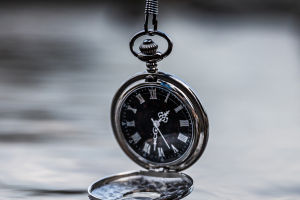You've probably heard it before: "Put your phone down before bed." But if you're like most people, you still scroll through messages, watch one more video, or check the news just before turning off the lights.
You tell yourself it's relaxing. But then you lie awake, or wake up feeling groggy. What if the real culprit isn't stress or caffeine—but the glow of your screen?
That cool, bright light from your phone, tablet, or laptop isn't just lighting up the room—it's sending signals straight to your brain that it's still daytime. And that's messing with one of your body's most important rhythms: your sleep cycle.
Let's talk about what blue light actually does to your body, what recent science says, and—most importantly—what you can do about it, starting tonight.
How Blue Light Tricks Your Brain
Sunlight contains a mix of colors, including a strong dose of blue light. Our bodies evolved to use this blue-rich morning light to stay alert and reset our internal clock—the circadian rhythm—every day.
The problem? Digital screens emit a similar kind of blue light, especially in the evening when natural light is gone. When your eyes pick up this artificial blue glow, your brain gets confused. It thinks: It's still daytime. Stay awake.
This happens because specialized cells in your eyes—called ipRGCs (intrinsically photosensitive retinal ganglion cells)—are especially sensitive to blue wavelengths. When they're stimulated at night, they suppress the release of melatonin, the hormone that tells your body it's time to sleep.
A 2023 study published in Sleep Medicine Reviews found that just two hours of screen exposure before bedtime reduced melatonin levels by an average of 23%, delaying sleep onset by 30 minutes or more. Even worse, the effect lasted into the next night—meaning poor sleep can snowball.
What the Latest Research Says
It's not just about falling asleep later. Poor sleep quality caused by blue light can affect your mood, focus, and long-term health.
Dr. Ivy Cheung Armstrong, a circadian neuroscientist at Northwestern University, explains:
"Even low-intensity blue light from a phone in a dark room can have a significant impact on melatonin suppression. It's not just the brightness—it's the timing and wavelength."
Recent studies show that:
1. Teens are especially vulnerable. A 2022 study in JAMA Pediatrics found that adolescents who used screens within one hour of bedtime were 45% more likely to get less than the recommended 8–10 hours of sleep.
2. Night mode isn't enough. While features like Night Shift or Blue Light Filter reduce some blue tones, they don't eliminate the effect. A 2021 study from the University of Manchester showed that even warm-toned screens still delayed melatonin release by 15–20 minutes.
3. Long-term risks are real. Chronic circadian disruption has been linked to increased risks of metabolic disorders, depression, and weakened immunity, according to the American Academy of Sleep Medicine.
What You Can Actually Do—Tonight
Knowing the science is one thing. But what can you do about it—especially if your job or habits involve screens?
Here are four practical, research-backed strategies:
1. Set a Digital Curfew (60–90 Minutes Before Bed)
Pick a time to turn off all screens—phone, TV, laptop. Use that time to wind down with low-light activities: reading a physical book, journaling, or light stretching.
Pro tip: Set a daily reminder on your phone… before it's too late to use it.
2. Use Blue-Blocking Glasses (Especially in Winter or Night Shift Work)
Amber-tinted glasses that block blue light have been shown in multiple studies to boost melatonin levels and improve sleep quality. A 2020 clinical trial found participants wearing blue-blocking glasses for three hours before bed fell asleep 13 minutes faster and reported better morning alertness.
Look for glasses that block light in the 450–480 nm range—this is where the strongest melatonin-suppressing wavelengths live.
3. Adjust Your Room Lighting
Swap bright white bulbs in your bedroom or living area for warm, dim lighting in the evening. Use lamps instead of overhead lights.
Red or amber nightlights are ideal if you need to get up at night—they have the least impact on circadian rhythms.
4. Optimize Your Screen Settings (Beyond "Night Mode")
Most night modes only shift colors slightly. For better protection:
• Lower screen brightness manually—don't rely on auto-brightness.
• Use apps like f.lux (free) or Iris (paid) that adjust screen color temperature based on your location and sunset time.
• Enable "Grayscale" mode on your phone an hour before bed—removing color entirely reduces stimulation.
It's Not Just About Sleep—It's About Living Better
You don't have to give up your devices completely. But small changes in how and when you use them can make a real difference in how you feel every day.
Think about it: when was the last time you woke up without an alarm, feeling truly refreshed? That kind of natural wakefulness happens when your body is in sync with its rhythm—not fighting against a flood of artificial light.
Try one change this week. Maybe it's wearing blue-blocking glasses while watching TV. Or charging your phone outside the bedroom. Or just reading a book instead of scrolling.
Your brain—and your future well-rested self—will thank you.
So tonight, before you unlock your phone one last time, ask yourself: Is this 10 minutes of scrolling worth tomorrow's tiredness?
The answer might just help you sleep better—starting tonight.


